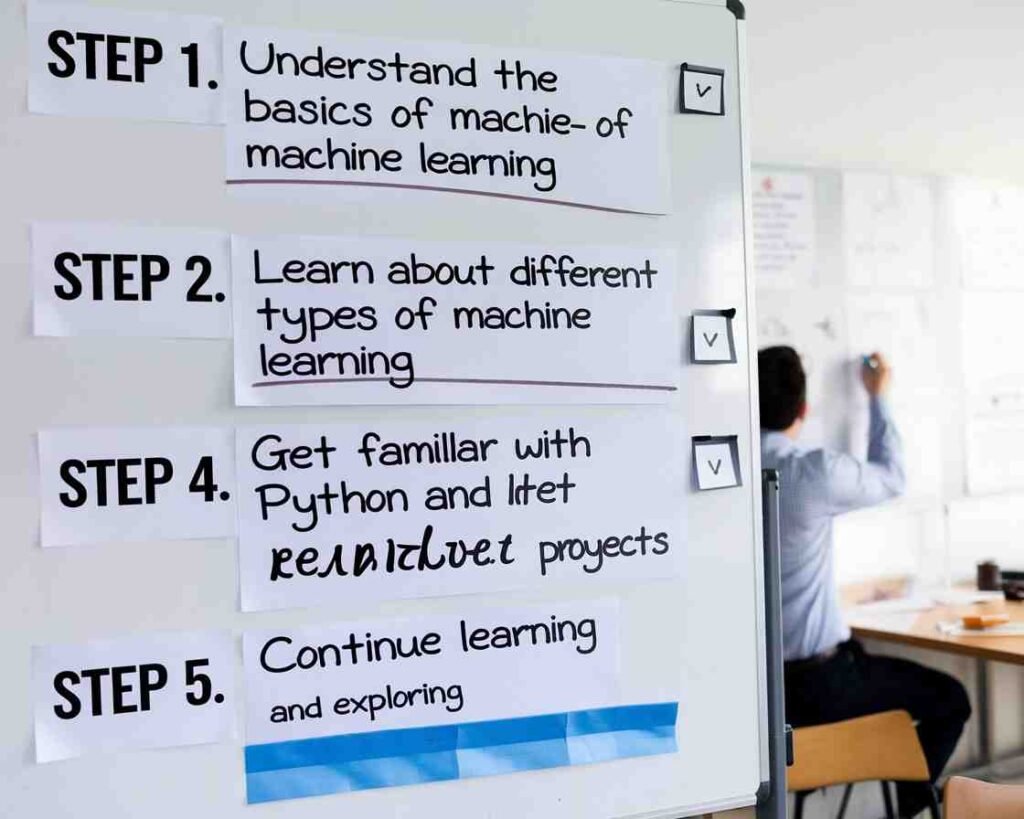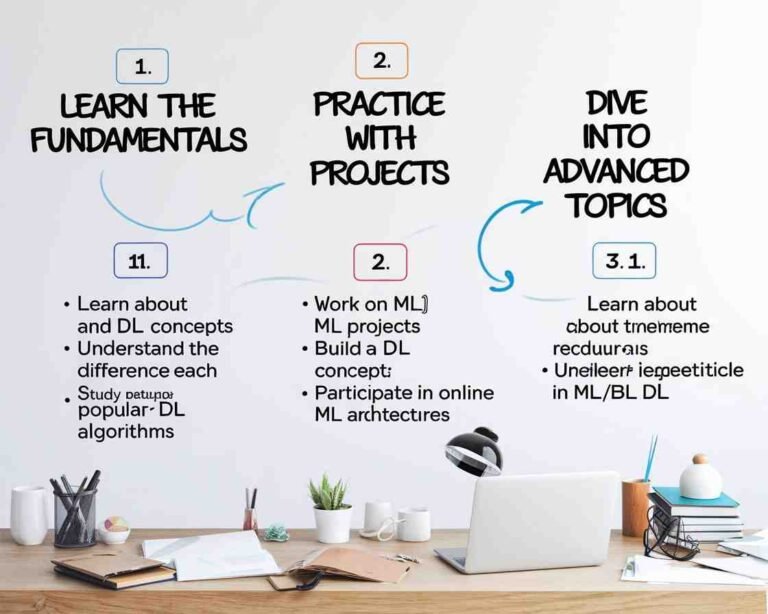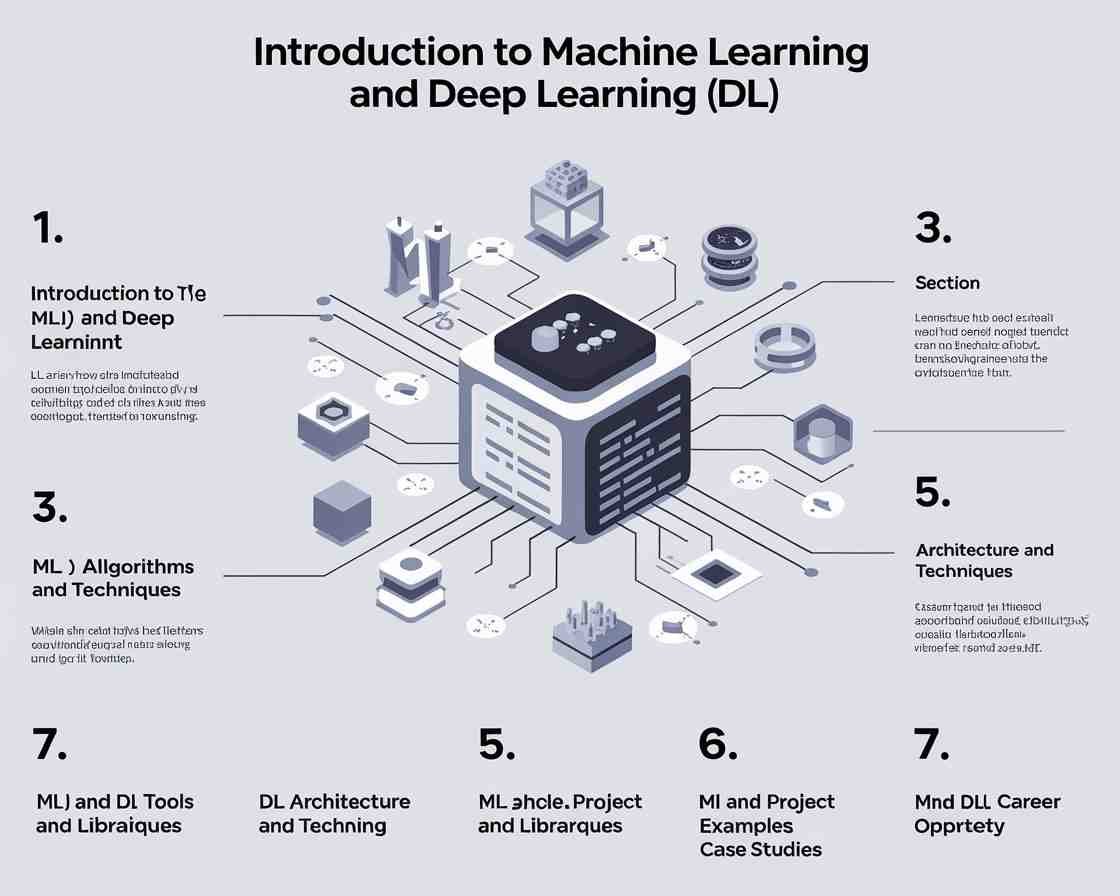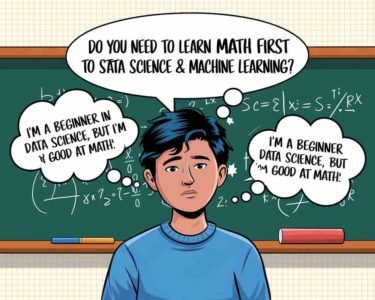Machine Learning (ML) and Deep Learning (DL) Step-by-Step Learning Guide and Job Preparation
Are you interested in learning Machine Learning or Deep Learning but don’t know where to start? Or are you unsure how to prepare for a job after learning? This post will guide you step by step!

Sazit Suvo
Designer & Editor
Step-by-Step Guide: How to Learn ML & DL
Learn Python
The first step to learning Machine Learning is Python, an easy and popular programming language.
➡ What to Learn?
- Core Concepts: Variables, Data Structures, Loops, Functions
- Libraries: NumPy, Pandas, Matplotlib, Seaborn
Practice: Write small programs and experiment with datasets.
Learn Basic Math and Statistics

To understand ML algorithms, you need to learn relevant Math.
✅ Key Topics:
- Linear Algebra: Vectors, Matrices, Eigenvalues
- Calculus: Gradients, Derivatives
- Statistics & Probability: Mean, Median, Variance, Distributions, Bayes’ Theorem
Best Practice: Learn relevant Math while learning ML.
Understand Basic Concepts of Machine Learning
Key Topics:
- Supervised Learning: Regressions, Decision Trees, SVM, KNN, etc.
- Unsupervised Learning: K-Means Clustering, PCA
- Evaluation Metrics: R-squared, Accuracy, Precision, Recall, F1 Score
✅ Tools & Frameworks:
- Scikit-learn: Popular ML library
- TensorFlow & PyTorch: For DL
Practice: Work with Kaggle datasets.
Explore Advanced ML and Ensembling Techniques
Topics to Cover:
- Advanced Algorithms: Random Forest, Gradient Boosting (XGBoost, LightGBM, CatBoost)
- Feature Engineering and Hyperparameter Tuning
- Model Deployment: Use Flask, FastAPI
Project Idea: Work on Kaggle datasets.

Start with Deep Learning
Learn Core Concepts:
- Neural Networks: Backpropagation, Activation Functions, Gradient Descent
- Convolutional Neural Networks (CNNs): For image and video processing
- Recurrent Neural Networks (RNNs): For time-series or text analysis
✅ Frameworks:
- TensorFlow
- Keras
- PyTorch
Practice: Work with Kaggle datasets.
Master Advanced Deep Learning Techniques
Topics to Learn:
- Generative Models: VAEs, GANs (Generative Adversarial Networks)
- Transfer Learning: Use pre-trained models for custom tasks
- NLP (Natural Language Processing): Sentiment Analysis, Chatbot Development
Project Ideas:
- Image Generation (GANs)
- Text Summarization
Learn Data Engineering and Cloud Computing
Skills to Develop:
- Data pre-processing, database management, and API usage
- Cloud Platforms: AWS, Azure
Create a Professional Profile
Build Your Online Presence:
- LinkedIn: Update your profile and share projects.
- GitHub: Upload your work.
- Kaggle: Participate in projects and competitions.
Showcase Projects and Portfolio
- Solve real-world problems.
- Have 5–7 high-quality projects in your portfolio.
Prepare for Interviews
Focus Areas:
- Technical Skills: Python, SQL, ML/DL concepts
- Soft Skills: Data presentation and communication
✅ Practice mock interviews with resources like LeetCode, HackerRank, and Glassdoor.
Your Roadmap to Success
The journey of learning Machine Learning and Deep Learning requires patience and consistent practice. Follow these steps:
- Learn step by step.
- Work on projects.
- Prepare for job opportunities.
💡 Remember, consistent learning and hands-on practice are the keys to success in ML/DL.




